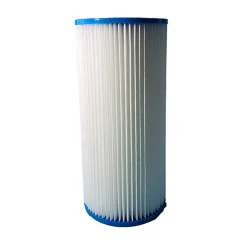Types of Purifier Filter
2023-11-27
Air and water purifiers typically use various types of filters to remove impurities and improve overall quality. Here are common types of filters used in purifiers:
Air Purifier Filters:
1. HEPA Filters (High-Efficiency Particulate Air):
- Effectiveness: Removes particles like dust, pollen, pet dander, and mold spores.
- Usage: Commonly used in air purifiers for allergy relief.
2. Activated Carbon Filters:
- Effectiveness: Absorbs gases, odors, and volatile organic compounds (VOCs).
- Usage: Often paired with HEPA filters to address both particles and odors.
3. Pre-Filters:
- Effectiveness: Captures larger particles, extending the life of the main filter.
- Usage: Used as a first line of defense to trap larger particles.
4. UV-C Light Filters:
- Effectiveness: Kills or inactivates bacteria, viruses, and other microorganisms.
- Usage: Often integrated into air purifiers for added disinfection.
5. Ionic Filters (Ionizers):
- Effectiveness: Release negatively charged ions that attach to airborne particles, causing them to fall.
- Usage: Can be found in some air purifiers, but concerns exist regarding ozone generation.
6. Electrostatic Filters:
- Effectiveness: Attracts and captures particles using an electrostatic charge.
- Usage: Often washable and reusable, reducing ongoing costs.
Water Purifier Filters:
1. Activated Carbon Filters:
- Effectiveness: Removes chlorine, sediment, volatile organic compounds (VOCs), and some heavy metals.
- Usage: Commonly used in water filter pitchers and faucet-mounted filters.
2. Reverse Osmosis Filters:
- Effectiveness: Removes a wide range of contaminants, including heavy metals, fluoride, and microbes.
- Usage: Often used in under-sink or whole-house water purification systems.
3. UV Filters:
- Effectiveness: Kills or inactivates bacteria, viruses, and other microorganisms.
- Usage: Typically used in combination with other filters for comprehensive water purification.
4. Ceramic Filters:
- Effectiveness: Filters out bacteria, parasites, and sediment.
- Usage: Commonly used in gravity-fed water filters for camping or emergency preparedness.
5. Ion Exchange Resin Filters:
- Effectiveness: Removes heavy metals like lead and mercury by exchanging ions.
- Usage: Often used in conjunction with other filters in water softeners.
6. Distillation Systems:
- Effectiveness: Boils water and condenses steam to remove contaminants.
- Usage: Removes a wide range of impurities but may not be practical for daily use.
7. Alkaline Filters:
- Effectiveness: Raises the pH of water and adds minerals.
- Usage: Used in water ionizers or alkaline water pitchers.
It's important to note that the effectiveness of a purifier depends on the specific contaminants it is designed to target. Combining multiple types of filters in a purification system can provide comprehensive removal of various impurities. Regular maintenance and replacement of filters are crucial to ensure optimal performance.



